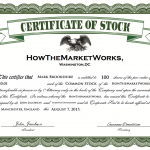Definition:
Exchange-traded funds that invest in physical commodities such as natural resources, agricultural goods as well as precious metals. A commodity ETF can be fixed on a single commodity and grasp it in physical storage or may invest in futures contracts. Alternative commodity ETFs look to track the performance of a commodity index which includes dozens of individual commodities through a combination of physical storage and derivatives positions.
Because a lot of commodity ETFs utilize bargaining through the buying of derivative contracts, ETFs may have big portions of uninvested funds, which is used to buy Treasury securities or other nearly risk-free assets.
More Detail:
Commodity funds frequently design their individual benchmark indexes which may contain only agricultural products, metals or natural resources. To the extent, there is frequent tracking errors around broader commodity indexes such as the Dow Jones AIG Commodity Index. Notwithstanding, any commodity ETF ought to be passively invested once the underlying index methodology is stationary. Commodity ETFs have risen in popularity due to the fact that they give investors exposure to different commodities without them having to learn how to purchase futures other derivative products.
Commodity funds frequently design their individual benchmark indexes which may contain only agricultural products, metals or natural resources. To the extent, there is frequent tracking errors around broader commodity indexes such as the Dow Jones AIG Commodity Index. Notwithstanding, any commodity ETF ought to be passively invested once the underlying index methodology is stationary. Commodity ETFs have risen in popularity due to the fact that they give investors exposure to different commodities without them having to learn how to purchase futures other derivative products.
Click Here to see all Beginner ETF Articles
 Stock
Stock The Fed / The Federal Reserve System
The Fed / The Federal Reserve System
